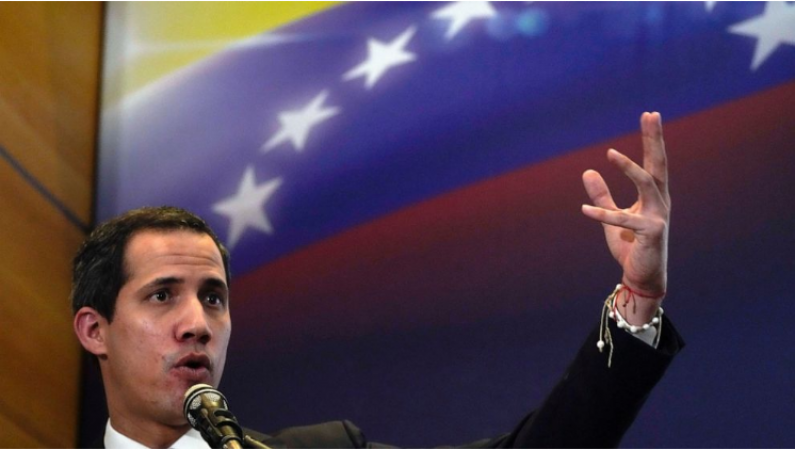
CARACAS: Juan Guaidó kicked off a three-year campaign by the Venezuelan opposition to hold fresh elections and oust socialist leader Nicolás Maduro.
But on Friday, a large number of politicians who had previously supported Guaidó voted to remove the 39-year-old engineer and replace his "interim government", backed by the United States, with a committee Who will take care The country's upcoming presidential election and the security of its assets abroad.
The vote reflects a change in the opposition's position of influence as it seeks new ways to appeal to voters ahead of the country's 2024 presidential election.
Also Read: Doctor who is British and Palestinian claims MI5 set him up
The motion to oust Guaidó, which was supported only by his Popular Will party, received support from three of Venezuela's four main opposition parties.
After the vote, Guaidó claimed that the action would result in a "power vacuum" that could tempt more foreign governments to recognize the Maduro government.
If there is no interim administration, who will they recognize in its place?'' He said, ''Today we delve deeper. And gave up an important weapon in our fight.
Guaidó's opponents argued that new strategies should be developed to reach voters. Some Venezuelans mock the interim government, calling it a "fake" government that has no control over regional institutions and cannot provide even the most basic services.
"I am casting this vote with a heavy heart," said Luis Silva, who took part in the online voting session for the Democratic Action Party. "We need to look for new strategies because we haven't been able to reach a consensus."
Daniel Varnaghi, professor of political science at Simon Bolivar University in Caracas, claims the opposition raised hopes under Guaidó's leadership but broke its promises to those who wanted to see change in the country's political system.
Varnaghi claimed that "he promised to end (Maduro's) usurpation, lead a transition and hold fair elections, and none of this happened."
Also Read: Dozens remain unaccounted for as the number of flood deaths crosses 44 in Philippines
Guaidó became leader of the opposition in 2019, serving as head of the opposition-run legislature, which began its five-year term in 2015 with what many observers regarded as Venezuela's last free elections. It was the last institution not run by Maduro's socialists.
Because his top rivals were disqualified from running, the National Assembly claimed that Maduro illegitimately obtained his second presidency in 2018. To prevent Maduro from remaining in power and prevent free elections from being held, opposition lawmakers called for an "interim government led by Guaidó".
The United States and several governments in Europe and Latin America that had rejected Maduro's regime recognized Guaidó as the country's legitimate leader. Guaidó also sparked protests in Venezuela, leaving the country for an international tour.
Additionally, the Houston-based oil refinery, Citgo, and other frozen Venezuelan government assets in other countries were given to their interim administration.
However, the Guaidó-led opposition was unable to persuade either the Venezuelan armed forces or the country's courts to support it, while Maduro's government dealt with street protests and tightened its control over the South American country.
Venezuelans, who struggle with high inflation, food shortages, and some of the lowest wages in South America - hardships that have driven millions to emigrate in recent years - were frustrated by the failure to oust Maduro.
According to a poll conducted in November by Venezuela's Andrés Bello University, only 6% of Venezuelans said they would vote for Guaidó if he ran in the presidential primary elections next year, while some other opposition figures received higher numbers. Happened.
Guaidó's influence has also declined since the National Assembly that elected Guaidó as interim president was replaced by new lawmakers elected in elections that were boycotted by opposition parties in late 2020.
Even though many members of Venezuela's 2015 National Assembly are currently living abroad, they insist on their legitimacy as the country's legislative body and hold online meetings where they vote to influence the "interim government".
Also Read: Pakistan pays a heavy price during the year of increasing terrorist attacks
On Friday, 72 of the 109 former lawmakers participating in the online session voted in favor of a motion calling for a committee made up of several opposition leaders to take over Guaidó's interim administration.